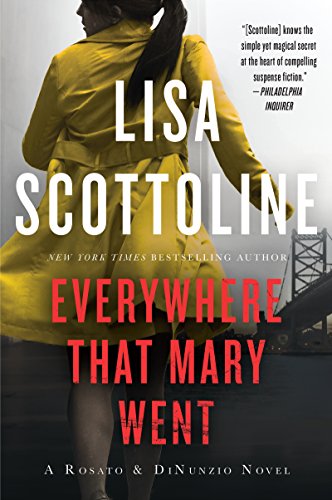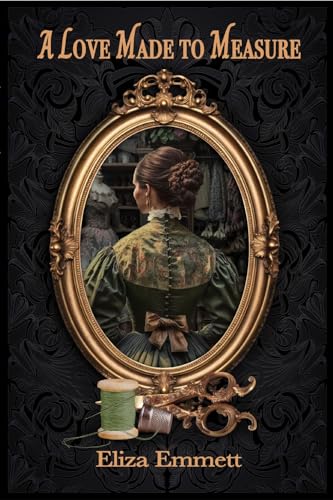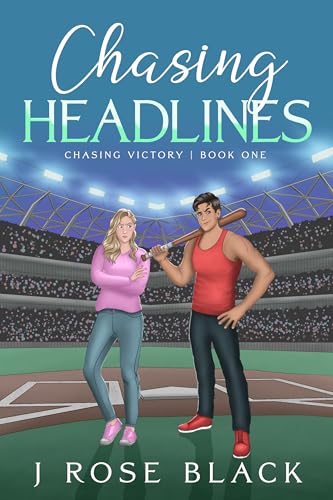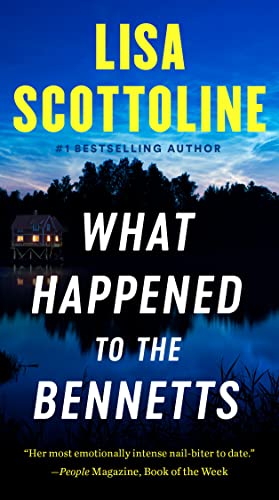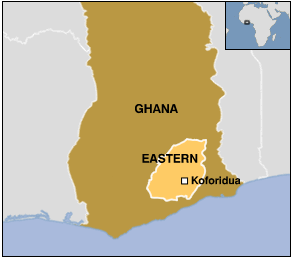Dindi
Dindi scanned the crowd, hoping to slip into the plaza unnoticed. Barter Hill swarmed with people because aunties from the three clans met here to trade every half-moon. A kraal at the bottom of the hill held aurochsen and horses. Interconnected rectangular adobe buildings created a square around the top of the rise. The old uncles, to suit their dignity, leaned against the wall on a log bench, under the shade of the eaves of the buildings, drinking corn beer, chatting amiably. They hid their thighs with waist blankets and caped themselves in shoulder blankets that reached the ground. Dindi slithered by them.
Unfortunately, the first person Dindi locked eyes with was Great Aunt Sullana. Though the whole plaza separated them, Great Aunt Sullana tore across the market like a tornado on the Purple Plains. She would demand to examine Dindi’s basket, and finding nothing in it except a kitten, pinch her cheek until Dindi stuttered some explanation. The natural and obvious defense would be to lie, but frankly, Dindi had always been a terrible liar. Her whole face ripened like a tomato, her eyes slid this way and that, she couldn’t convince a child honey was sweet never mind fool Great Aunt Sullana, who ate secrets for morning meal.
Evasion her only option, Dindi darted past a couple of elder women haggling over an exchange of vegetables for pottery. Married women, with their salt-and-pepper hair coiled in stacked rings atop their heads, sat with their wares on blankets arranged all around the dancing platform. Dindi wove a path around multifarious piles of tubers and bone awls, behind bunches of water gourds hung like grapes over racks of smoked venison. Aunties shouted and tried to call her attention to bargins by slapping her calves with horse-hair whisks.
Great Aunt Sullana changed course to track her. Dindi hopped behind a group of bare-chested warriors who mock-fought one another, to the annoyance of an auntie whose tower of baskets they upset. A gaggle of girls giggled at their antics. Great Aunt Sullana kept walking in the wrong direction. Dindi sighed in relief.
A slow drumbeat reverberated throughout the market square. The Tavaedies! No one could see the drum, but each beat shook the ground like earth tremors. Heads jerked up and eyes began to sparkle. Rattles and flutes supplemented the drumbeat. From a hole in the ground in a clear space just in front of the dancing platform, a line of masked dancers emerged. Each costume was slightly different, determined by the dancer’s color of magic and the dance the troop performed that day. A large headdress and a matching mask of either cloth or paint disguised each face. Each Tavaedi wore a costume entirely dyed and painted in shades of one of the primordial six colors.
Dindi had never told anyone she aspired to become a Tavaedi. She wasn’t interested in reaping snickers or commiseration. Besides, what did she care what the others thought of her? She knew how hard it was, but she had a plan.
Every head in the square was riveted on the Tavaedies. Drum, rattle, and flute flared into dramatic music. The masked men and women leaped into motion. Occasionally, to emphasize the moves, the dancers chanted or shouted as well.
Dancing wove magic. Some ritual dances, or tama, ensured bounty, others averted drought. This tama, Massacre of the Aelfae, recalled history. The Tavaedies only performed it once a year, and as a child, it had been her favorite-until she understood what it was really about.
Half the Tavaedies wore wings. “We are the Aelfae, we are the Aelfae,” they chanted.
The other half of the dancers carried spears. “We are the humans, we are the humans.”
The dance showed a clan of Aelfae, the high faery folk who had lived in the Corn Hills before humans came. High fae were not like low fae, pixies and brownies and sprites and such, but possessed grace and grandeur beyond anything human. In form they were as tall, or taller, than humans, although more beautiful, a strange, glowing people, with wings like swans. There had once been seven races of high fae, and of them all, the Aelfae had been the most beautiful and powerful and wise.
The fake Aelfae took the stage first. They flapped imitation wings. To pretend they were flying, they engaged in numerous acrobatic flips, handsprings, handless cartwheels, and somersaults over each others’ backs. The fake Aelfae flitted about the platform until the “human” dancers with spears arrived.
She had to focus. She had to get this right, every move, every detail. She intended to teach herself everything she could from watching them, so when the time came they would invite her to join their secret society. She wasn’t supposed to know, but she had eavesdropped on enough conversations to learn one secret about the Initiation. Each Initiate would be asked to dance a tama, and only those with magic would perform it correctly.
The two sides began to mock-fight. They punched and kicked and crossed spears, they threw one another and made dramatic vaults over one another’s heads to attack from the rear. The humans began to slaughter the Aelfae. Maybe the dance exaggerated the humans’ prowess, but the Aelfae fled, wailing, across the stage. None escaped the humans.
While they danced, Dindi reproduced tiny imitation movements with her hands and feet-nothing noticeable to anyone watching her-to help her commit the steps to memory so she could practice them on her own later. At first, when Dindi had started observing the dances with the object of learning them, she had missed most of the steps. Every moon, she noticed more.
Lately, as the Tavaedies danced, she had begun to see the most amazing thing. The interactions between the dancers were not random. They formed rows and columns, circles and chevrons, shaped arrangements of dancers. And these patterns glowed. It was as if the dancers created ribbons of living light by their movements, tracing out incandescent symbols with their bodies. The dancers themselves glowed too, in the same color as whichever costume they wore. Even now that Dindi knew what to look for, she couldn’t see it all the time, only if she concentrated.
The human dancers encircled the last of the Aelfae dancers, who fell into an artful pile of corpses.
“The Aelfae are no more, the Aelfae are no more,” victors and corpses droned in a mournful dirge.
The chant hit her with a wave of melancholy. The interlocking patterns of light the dancers had created rippled outward like disturbed water, and when the light hit her, vertigo robbed Dindi of her balance. She stumbled, nearly fell.
For a moment, instead of the Aelfae dancers, she saw beautiful beings with wings like swans, and instead of stylized flips and leaps, she witnessed atrocities she could barely comprehend. Aelfae men forced to eat their own intestines, Aelfae women with bloody thighs pinned down under grunting human males, Aelfae babes clutched by their tiny wings and smashed face-first into walls…. Underlying it all, she sensed not one battle, but decades of skirmish and ambush, truce and betrayal, wearing the Aelfae down, driving them to their final extinction, not just in the Corn Hills, but across all of Faearth.
She blinked, and the double vision cleared. Tears streaked her cheeks. It was not just a dance. Though the events reenacted had happened long ago, they were real. Her people had done this, wiped out the most beautiful and powerful faeries in the world, pushed them all to extinction save one. In all the world, except for the White Lady, who was the last of her kind, the Aelfae were no more.
On stage, the triumphant humans split into three groups. One carried a full basket, another a basket split into two halves, and a third a swan feather. They represented the three clans who now lived in the Corn Hills-the victors in the war with the Aelfae. That was the end of the dance. The Tavaedies formed a line and snaked back down into their hole, to their kiva beneath the square.
“Ooooh, look, it’s the goose from Lost Swan,” said a catty voice.
Dindi whirled around.
Kemla and a few of her cousins stood there, young women from Full Basket clan who were always harassing Dindi.
“Crying because when Initiation comes, you won’t be invited to become a Tavaedi like me?” Kemla taunted. She always wore as much scarlet as a non-Tavaedi could get away with, and had arranged cardinal feathers in her breast bands to show off her cleavage.
Hastily, Dindi wiped her face. “You don’t know that.”
“It’ll never happen, goat-legs,” snickered Kemla. “No one in your scraggly clan has ever been chosen as a Tavaedi. The closest Lost Swan clanholders come to dancing magic is to go mad and run off with the fae.”
The Full Basket girls laughed. Dindi flushed.
“Goat-legs! Goat-legs!” The girls formed a circle and shoved Dindi back and forth, finally pushing her into the dust. They laughed and flounced away.
The dust tasted like dung. They were right. No one from Lost Swan Clan had ever passed the test given during the year children disappeared for Initiation rites. She could be taken for Initiation any day now, Dindi thought. And all omens indicated she’d fail miserably. Like her mother. And her grandmother. And every single person in her whole clan since the days of the Lost Swan Clan’s great-mother.
Her basket had fallen. A tiny meow and skritching came from inside. She pulled her kitten out of the basket. His fur stood on end and he looked outraged. She’d rescued the kitten from a grolwuf, a cat-eating goblin, who had already devoured mama cat and the other kits. The little thing had been snow white, eyes sticky shut, but since then his ears, nose, paws and tail had darkened to black, as if he’d pranced in mud, so she’d named him Puddlepaws. She petted and kissed him until his fur settled and he purred to let her know the upset basket was forgiven.
The purring kitten on her shoulder and the beauty of the day rinsed away her gloom on the walk home. Rolling green hills stretched out in every direction under a perfect blue sky marked only with the V of migrating swans. Everything smelled fresh. The corn was shoulder high, while inside the pale green husks, the kernels flushed deeper gold with each passing day. Innumerable clouds of tiny willawisps hazed the fields like sparkling mists. Maize sprites clambered nimbly to the tips of the straight-backed stalks to wave at Dindi when she brushed by them. Pixies of every color fluttered on luminous wings around her head, making her dizzy. Puddlepaws batted at them.
“Wait up, Dindi,” called her cousin, Hadi, puffing behind her. “Aunt Sullana asked me to find you.” He posed with his spear, in an attempt to look stern. Unseen by Hadi, a pixie banged the butt of Hadi’s dangling spear on his knee.
“Ow.” He dropped the spear and hopped about on one foot. He glowered suspiciously at his spear when he picked it up, and then at Dindi. “There aren’t any fae around, are there?”
“Hardly any,” Dindi assured him.
The pixies laughed as he plowed right past them without seeing them. Most people could not see the fae. Kittens could. Puddlepaws leaped from her shoulder, trying to catch a pixie, missed, of course, and flipped in the air before landing in the dirt.
“I’m not a wayward goat,” said Dindi. “I don’t need herding.”
“I’m older than you and I’m the closest you have to a brother, so yes, I am your keeper,” he said, brandishing his spear. “Once I pass Initiation, and I am a Man, my duty will be to protect your honor from all who threaten it-“
The mischievous purple pixie crouched at his feet, fiddling with the laces to his legwals. While Dindi tried to guess what the fae was up to, the pixie untied two pairs of laces on either of Hadi’s legs, then retied the wrong strings together. Meanwhile, another pixie buzzed around his ear to distract him. Though Hadi couldn’t see the fae, and couldn’t make out the words, he could hear the hum of pixie voices.
“You little fiends!” Hadi waved his spear. “I know you’re here somewhere! I’ll get you!”
“Hadi, don’t…!”
When Hadi tried to lunge, he tripped because his calves were tied together. He fell face first into the moist soil.
“You mucky faeries!” He pounded the mud where he’d fallen. The pixies cheered and jumped up and down on his back while congratulating each other on their victory over the foe. Puddlepaws pounced on the pixie. Very proud of himself, he held the pixie by the back of its little tunic and brought it to Dindi.
“Bad kitty! Bad kitty!” cried the pixie.
Dindi scooped up the kitten, freed the pixie, and shouted back over her shoulder, as she took off down the row of maize, “I’ll just go on ahead.”
“Dindi! You are not to leave my sight!” He squirmed in the mud but only managed to dig himself into a shallow trench. “Dindi! Dindi, get back here this instant! I’m in charge of you!”
She just laughed. The empty basket bounced on her back as she ran. The fae followed Dindi in a cloud.
“Come dance with us! Come dance with us!” they urged in a babble of flute voices.
“I can’t this afternoon, friends,” Dindi apologized. “I have to gather soap roots, tallow and ash to make soap and pick and juice blueberries, all by middle meal.”
A purple pixie fragile as a butterfly, landed on Dindi’s shoulder. She twined her tiny lavender hands in Dindi’s black hair.
“Chores are boring, Dindi,” she said.
“That’s why they call them chores.”
“Don’t let those humans tire you out, Dindi,” chided a green pixie.
He landed on Dindi’s other shoulder. A red shoved him off and claimed the shoulder for his own. That enraged the purple, who raced over Dindi’s nose to attack the red pixie. All this activity excited Puddlepaws, who squirmed in Dindi’s arms. She kept her grip firm on the furry pixie-hunting predator.
“Do you mind?” Dindi said. “It’s very difficult to walk when you’re using me as a battleground.”
“Then come dance with us!”
“Yes, yes!” agreed a yellow dandelion sprite. He parted the corn stalks to skip at Dindi’s feet. “You dance with us and in exchange, we’ll do your chores for you.”
“Mm. Just like you milked the bull for me and winnowed the sugar out of the gravel for me, and wove a sitting mat I was to give to Uncle Lubo out of prickly pear thorns?”
“Friends,” the green pixie said to the others, “anyone would think she wasn’t grateful for all our help.”
“Impossible.” The purple one giggled. “She just can can’t express herself because she’s so overwhelmed with joy that with her chores out of the way she is now free to dance with us.”
Dindi frowned.
“Are you sick, Dindi?” asked the orange.
“We won’t do your chores for you anymore if you stop dancing with us,” blustered the yellow sprite.
That would be a big loss. “Soon, I might not be dancing with you anymore at all. If I fail the test to become a Tavaedi, I must stop dancing.”
The fae were stunned silent for a moment. Then they all began to shout at Dindi at once.
“Enough!” cried Dindi, making the Dispel hand-sign in earnest this time. The clouds of willawisps scattered, the pixies were flung away as if by gusts of heavy wind, and the sprites all went rolling like tumbling stones. Corn stalks were flattened around Dindi in a perfect circle three yards out.
From the perimeter of the circle of dispellation, the fae peered at her with hurt expressions.
“I’m sorry,” Dindi said. “You know I don’t want to abandon you.”
The fae crept back towards her until at last they huddled as close as before, murmuring her name.
“Uhm.” She was abashed. “Could you help me fix the corn?”
“Hurrah! She will dance with us!” squealed the purple pixie.
What harm would it do to share one more teensy weensy dance with her friends? After all, who knew when Initiation might come? She might never have another chance. She would sip one last taste of wild faerie magic. She shrugged away the basket and let Puddlepaws down in the grass. Dindi let the fae lead her into their circle.
The pixies began to fly in circles over the ruined crops. The cob-sized corn sprites whose stalks she’d knocked over joined in next. Willawisps were drawn to all the activity. They all began to twirl and shuffle and skip and jump in a ring around and around, Dindi dancing right along with them. As the corn stalks began to right themselves, the dancers changed the pattern and started to weave in and out of the stalks. Wild swirls of color trailed in the wake of all the fae dancers, strange and marvelous.
Dindi laughed with exhilaration despite herself, abandoning herself to whatever moves her body wanted to make. The corn was upright again. If anything, it was greener and more fragrant than before.
Dindi slowed down, signaling the fae to stop too. They refused to take the hint. They kept whirling.
She danced alongside them, but she knew it was their magic at work. If she didn’t stop them from getting carried away, they would continue dancing and possibly start to do more damage than good.
She had seen them summon storms, uproot trees, start geysers from bare rocks. It was one reason she normally only danced with them out on the heath, far past the cultivated fields. Mama had warned her never to let other humans see her play with the fae.
The swarm of whirling faery dancers moved up the mountain, without ever missing a step. Dindi moved with them, keeping up easily with their improvised patterns of skips, turns, kicks and leaps.
Soon they emerged onto a patch of flat heath with a view of the whole valley below. The sky seemed to pull back to give them more room.
She spread her arms and drew in a drought of the fresh air. Then she closed her eyes and envisioned again the shinning swirls of light patterns created by the Taevaedis on Barter Day. In her mind, she recreated the role of every single dancer. What steps had each player in the pattern made? One by one, she danced each person’s role as best she could remember it. First, she played the ‘human’ parts.
Then, saving and savoring them for the end, she played the Aelfae parts. But when she came to the finale, when the last Aelfae in the dance was to fall and die, she decided to change the ending. Instead, she leaped up again, spread her imaginary wings behind her and vaulted across the field in a full twisting double back leap.
The fae laughed in glee. They much preferred her new dance to the dance of the Tavaedies. Satisfied now that she had run through all the steps of all the dancers in yesterday’s dance, Dindi finally abandoned herself to free-form dancing. That delighted the fae even more.
The low hum of faerie voices, the sparkle of pixie wings and her own pounding blood wrapped Dindi in a trance of pure feeling. Movement inside her itched to spill out.
A pixie curled a small hand around Dindi’s ear, whispering, “You never have to go back, Dindi. You could dance with us forever and ever…”
Their voices hummed hypnotically, enticing her forward step by step. The lullaby lure of the faery ring shimmered all around her, a mixture of light and song. The fae clasped hands together, closing the circle about her. A chain of pixies undulated in the air, the sprites linked up, and then, in the last gap in the circle, a heron-winged kinnara soared toward the dancers to close the circle. “Come dance with us, Dindi. Come dance with us forever…”
“Nice try, but I’m not yours yet!” Regret tinged her amusement, but her resolve was firm, as it always was when the fae played this game with her. Dindi somersaulted through the air with an aerobic leap that catapulted her right out of the gap. She rolled away on the moss, laughing.
“You can’t catch me in a faery ring that easily,” she teased them. The fae responded in delight.
“Again, again!” they urged her.
“My family needs me. Oh, mercy!” She clapped her hands over her face. “Soaproot and blueberries! I haven’t had time…”
Boast waved his little scarlet arms in an expansive gesture. “Fear not, friend Dindi! We have taken care of all that silly human stuff for you!”
Oh.
Oh, no.
“How, um, exactly?” Dindi asked.
“How else? We juiced the blueberries and sudded the soaproot.”
“Here it is now,” said Kippy. A goat legged satyr with tawny fur and an Orange glow, skipped up to Dindi. He carried a covered basket in one hand-the soap-and a jug in the other hand-the blueberry juice. It was the same jar she had broken this morning. The fae had stuck the cracked shards back together. After Kippy placed these on the grass before her, he bowed solemnly and pranced away.
“We did it just like the humans do,” Giggles said.
Dindi had her doubts, but just at that moment she heard Hadi shouting. He appeared around a bend in the path and glared at her with exasperation.
“There you are! An important guest has arrived for middle-meal and Great Aunt Sullana will chop off your toes if you miss it. And on top of that, I’m starving. If you make me miss middle-meal, I’ll tell her you went off dancing with the fae again.”
An important guest?
“I have to go,” Dindi told the fae. She rescued another pixie from Puddlepaws, shouldered her basket, and followed Hadi back down the hillside.
Kavio
Kavio smelled the costumes of his accusers before he could see them-corn-husks, horse hair, quilt skirts and shoulder blankets soaked with years of dancers’ sweat. He heard the rustle of many bodies, the clicky-clack of shell and chalcedony bracelets jangling upon wrists and ankles. The susurration of disapproving voices rose in pitch as people noticed his entrance.
Stone spearheads pricked him in the shoulders. Tiny trickles of blood coursed down his back, mingling with his sweat as a testament to his guards’ enthusiasm to see him judged for his crimes. The warriors guarding him had told him nothing. He had been blindfolded, stripped to a loincloth, and bound with his hands behind his back. Still, Kavio didn’t need to see to know he had been brought to his trial.
The cool, musty air, crisscrossed by rays of warmth, told him this must be the kiva where the Society of Societies convened for the most serious of deliberations. The underground amphitheatre was one of the few kivas with windows in the upper reaches of the room. Otherwise, the texture of the walls and floor-volcanic rock daubed with adobe and dung whitewash-felt no different from the rest of the Labyrinth.
The guards shoved him to his knees before one them tore off his blindfold.
Three dyed reed mats had been placed at intervals down the center of the rectangular room, one white, one black, and one orange. A large polychrome pottery vase painted in patterns of those same three colors had been placed beside the middle, black mat. Kavio knelt in front of the white mat.
Tiered adobe steps around three sides of the rectangular room provided seating for the Tavaedies and Zavaedis, the men and women of the secret societies. From the squeeze of costumed bodies, it looked as though every dancer in the Labyrinth was in attendance. All were masked. Many of the masks sprouted huge fans of woven cane, feather tufts, or carved wooden animal faces. Others sported horns, manes, or false beards. Still others displayed abstract shapes, ovals or diamonds, or a cascade of beaded fringes. It wasn’t easy for so many masked dancers to fit in the tiers. Feathered and beaded shoulder blankets, necklaces coiled as thick as snakes, and full corn-husk skirts took up space.
Only his mother, indifferent as ever to convention, wore no mask, just a simple white beaded dress. She sat stiffly on the lowest tier, face-to-face with Kavio. Even at her age, she was the most beautiful woman in the room. She was also the only one in the tiers who had no closely-pressed neighbors. No one quite dared sit next to her.
Opposite her, behind Kavio, rose an adobe platform taller than any of the tiered seats. He had to twist his head to look up the seven steps to the top of the platform to see the man who stood there in full regalia, holding a rain stick. Paint divided the man’s already severe features into an interlocked pattern of sharp edges and boxes.
Colorful matching mazes were woven into his shoulder blanket and outlined in beads of obsidian and pearl. His massive headdress consisted of numerous coiled cords, horned and feathered and shelled. Beaded hoops rested around his neck, as did a gold coiled torque. The pin that held his shoulder blanket in place had also been beaten from gold, into the shape of a stylized wild horse.
The man pounded his rain stick on the platform. He had a voice of gravel and stone.
“Let it be remembered on the Memory Stick, that in This Year, yet to be named, I, the War Chief of the Rainbow Labyrinth and head of the Society of Societies in the absence of a Vaedi, have called all of the secret dancing societies together to sit in judgment at the trial of Kavio . . .”
He paused to make the ponderous trip down the seven steps to the floor of the assembly room. Even so, because Kavio had been forced to his knees, the other man had to look down to glower at him.
“. . . Kavio, my own son.”
Even though he’d expected it, his father’s contempt stung.
“Who will cast the first stone?” asked Father.
The men and women in the tiers shuffled, whispered. Most of them removed their masks from their sweat-drenched heads, and a few went so far as to fan themselves.
A woman in amber necklaces removed an orange eagle-feathered mask before she rose to her feet. She was an elder from Father’s generation, his brother’s wife and Father’s bitterest political rival. As a child, Kavio had nicknamed her “Auntie Ugly.”
“I will cast the first stone on behalf of the accusers,” Auntie Ugly said with ill-concealed relish. “Kavio committed the most serious crime of which a Zavaedi dancer is capable. He concocted his own Pattern, a dance unknown to our ancestors. He cannot name the teacher that taught it to him, nor the society who held its secret. That is hexcraft.
“That in itself would be reason to discipline him. But on top of that, he used this Pattern for the vilest of purposes, to harm the community that bore him and to deprive his neighbors of their very livelihood.”
Kavio glanced involuntarily at Mother. He had never seen her so ashen. Though a part of him wanted to spit in Father’s face, the knowledge that he had disappointed Mother burned like chili pepper in his mouth. But no matter what happened, he’d be cursed before he’d show how he felt in front of this assemblage of vultures and jackals. Or in front of his father.
He lifted his chin and faced his accuser with his most insolent smile.
As he’d known it would, his smile infuriated Auntie Ugly. She jabbed a bony finger at him.
“Three days ago, Kavio, you went into a room here in the Labyrinth and performed a hex that diverted a part of the river upstream from the Valley of the Aelfae. By doing so, you have lowered the water level in the fields, making it possible that not enough silt will be deposited by planting season.
“As witness, I call my own son, Zumo the Cloud Dancer.”
Kavio’s cousin, a young man of similar age, build, and height, stood. He removed his mask of blue shells. While Kavio seethed inside, Zumo repeated the lies that had led to this trial in the first place. Not that anything Zumo testified was false; his deception lay in what he didn’t say.
After Zumo, a second witness repeated the story of having found Kavio dancing alone in a kiva in the Labyrinth.
“Thank you both,” Auntie Ugly said smugly after the second witness sat down again. “Kavio, do you deny these charges?”
“I don’t deny what I did,” he said. “I deny that I invented the Pattern, I deny that it was hexcraft, and I deny that it was intended to harm our people.”
When Auntie Ugly sneered at him, the anger that had been pummeling his belly these last days bettered his sense, and he added sarcastically, “I do not deny that there are times I wish I had let you all drown.”
He knew it was a mistake as soon as he said it. The masked Tavaedies and Zavaedies hissed and shouted.
“Zavaedi Kavio’s guilt is plain,” said Auntie Ugly. “I cast my stone with justice. I call for Kavio’s death!”
She glided to the pottery jar and pulled out a smooth, gray stone, then tossed it on the black mat.
Big surprise there, thought Kavio. You’ve always hated me, you old toad. I never even understood why.
“Zumo?” Auntie Ugly asked her son.
More slowly than his mother, Zumo picked a stone. He threw it on the black mat. He had to walk by where Kavio knelt on the adobe floor to reach his seat again. Just as he passed, Kavio looked up and met his eyes.
“Is that what you really think I deserve, cousin?” Kavio asked in such a low voice that only Zumo heard him. “For what crime? The lies you told here or because I know the truth about you?”
Zumo flushed, whether with guilt or anger, it was impossible to tell.
“No one will listen to anything you have to say now, Kavio,” Zumo replied, also too quietly for anyone else to hear. “They’ll know you’re just clawing at worms to try to save your own hide.”
He stomped back to his seat, where he replaced his mask.
Auntie Ugly had sentenced the son of her rival to death; all eyes now fell upon Father to see if he would defend his son.
Father’s heavy shoulder blanket seemed to weigh him down as he walked to the jar to pick up a stone. He stood there a long while, turning the rock round and round in his hands.
“I would like to speak,” he said finally, looking straight at Kavio, “on behalf of the accusers.”
Surprise stirred the onlookers. Kavio just smiled grimly. He wasn’t surprised at all. He’d known from the day his father had called for the trial that Father would put political need above family sentiment. Sure enough, Father gave a pretty little speech, distancing himself from his son. He locked his jaw when he finished and clutched his fist around his stone. “I too must cast my stone with justice, even if it means the death of my own son, my only child.”
He threw his rock on the black mat. He met Kavio’s eyes without flinching, but when Mother gasped, Father would not look at her.
Mother stood up next and pleaded on Kavio’s behalf. Even she would not declare him innocent. Instead, she simply begged for mercy-exile instead of death. Mother picked a stone out of the jar and placed it on the orange mat.
Kavio felt his face burn with shame. He wouldn’t beg for his life himself, and he didn’t want her to crawl for him either. Besides, death would be easier than exile. He didn’t think he could bear the humiliation of wearing ash. Exile meant fleeing his home like a vole from a prairie fire. Exile meant scorn would meet him wherever he went. Exile meant he would not have the opportunity to finish unraveling the puzzle he had discovered in the heart of the Labyrinth, the only magic he still cared about.
Far, far better to die.
One by one the rest of the Zavaedis came to cast their stones for either exoneration, exile, or death. Some spoke to the assembly of their reasons why, others simply placed the stone according to their choice.
Unfortunately, his mother’s plea moved many people to pity him. When all the rocks had piled up, the orange mat held the most stones.
Exile.
Kavio swallowed hard to conceal his reaction. You have murdered me all the same.
Father pounded the rain stick.
“Kavio, you have been found guilty of the most heinous of crimes-hexcraft. Though you remain a member of the secret societies that initiated you and are therefore spared death, nonetheless you are forbidden to enter the Labyrinth, to take with you anything from the Labyrinth, or to study with any dancing society of the Labyrinth. Do you understand and acknowledge your punishment?”
“I understand it all too well,” Kavio said through gritted teeth. “But I will never acknowledge it as just.”
“So be it,” Father said tonelessly. “Bring the pot of ashes.”
Two warriors hefted a ceramic pot from where it had rested in the shadow of the tall platform. They forced Kavio to lean back while still on his knees. They smeared him with a paste and rubbed in the gray-black powder. His bare chest and clean shaven face disappeared under a scum of grey crud. Humiliation itched, but like poison ivy, he knew it would be worse if he scratched it. He forced himself still as stone while the warriors slapped on more mud.
“You must wear mud and ash for the rest of your days,” the Maze Zavaedi concluded. His voice broke. “I am ashamed to call you my son.”
Kavio struggled to his feet. The warriors escorting him surrounded him with a hedge of spears. Did they fear him, even now?
“You never could just trust me, could you, Father?” Kavio asked.
Father’s jaw jutted forward. A muscle moved in his neck. Otherwise, he might have been rock. “Escort my son out of the Labyrinth.”
and Western Swing
….





